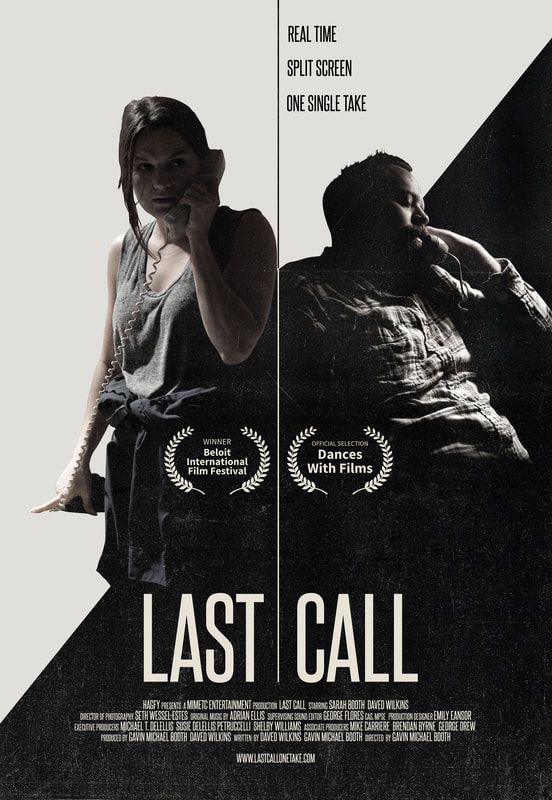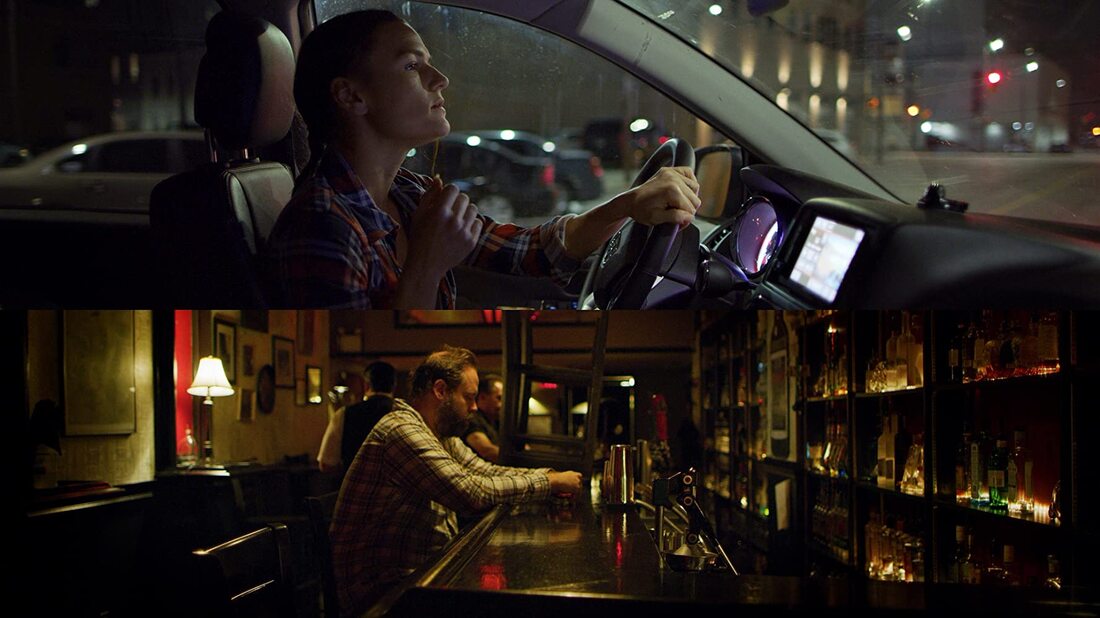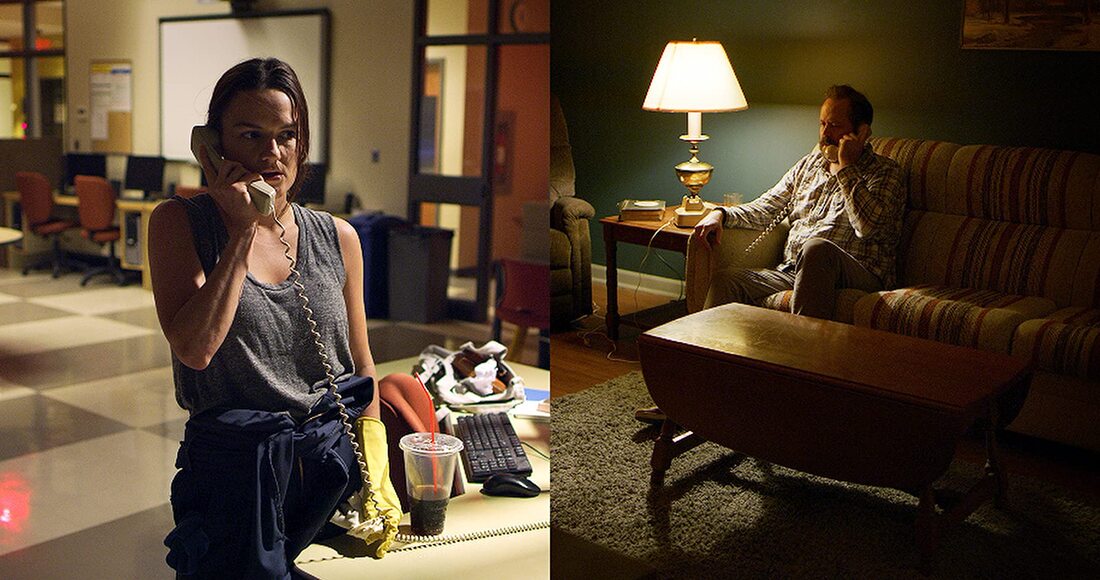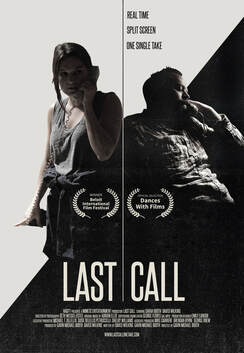Beth (Sarah Booth) is a single mum who cleans the local college at night. Scott (joint writer Daved Wilkins) is a grieving and suicidal father at the end of his rope and seeking support. A wrong number brings the two strangers together and for the next hour Beth is faced with trying to save the life of a man she doesn’t know in a desperate situation. The meticulous script is the cornerstone which holds "Last Call" together. And for a film with such a distinctive style like this, the foundation needs to be rock solid otherwise it becomes just an experiment in filmmaking. The script pushes and pulls the pace in just the right places so that we learn key pieces of information at exactly the right times without ever feeling manipulated. With the groundwork laid the stakes are raised higher and higher. The film’s intensity ratchets up steadily, scene by scene, so that by the end we care so much about these total strangers we’re clutching our heads, eyes bulging screaming at our screens. On top of an excellently woven script is the feat of acting the whole thing in one go. Theatre actors will perform for hours at a time but we don’t see that on screen unless it's a live broadcast. Both actors here performed the entire film in one take without hidden cuts. And after over an hour of delivering every line and hitting every mark, they somehow pull an ending out of the bag that is tear-stingingly heartwrenching. Where they found the reserves I don’t know, but they both pulled on something very deep to match with the enormity of the situation and the seriousness of the subject matter. What about the one-take split-screen? At the beginning there’s a lot going on visually and it can be hard to know where to look. I was a little worried that there would be too much competition for my attention throughout. Oh ye of little faith. The whole thing is meticulously framed to compare and contrast the images so you take in exactly what the filmmakers want you to, whether that's a lot of information or the bare minimum. The cameras constantly and seamlessly frame and reframe both images. Each angle was carefully planned out to complement the other without any cutting. The split screen itself also shifts from landscape to portrait and back again to give a different aspect ratio to various parts of the film. This is done so seamlessly, and we're so captivated by the content of the scene, that it's hard to notice despite being quite a major shift. Being about a man experiencing a suicidal episode "Last Call" handles this weighty and upsetting topic with utmost care while maintaining the intensity needed to give the film power. It’s very reassuring that Beth made sensible decisions throughout, seeking help from the right people and trying to support Scott by the book. It’s also wonderful to see Scott reaching out for help in a time of need. Although the conversation wasn’t what he was expecting, films like this help to normalise asking for help. Hopefully, people will see this film and be inspired to take Mental Health First Aid training or to seek help if they need it. And to respect the work of crisis call handlers even more because that job is stressful, emotionally draining and a literal lifeline. Last Call is a triumph for indie filmmakers Gavin Michael Booth and Daved Wilkins. Each element is rock solid, creating a film that’s incredibly unique, intense and gut-wrenching. Comments are closed.
|
AuthorHi, I'm Caz. I live in Edinburgh and I watch a lot of films. My reviews focus mainly on women in film - female directors or how women are represented on screen. Archives
December 2021
Categories
All
|






 RSS Feed
RSS Feed
